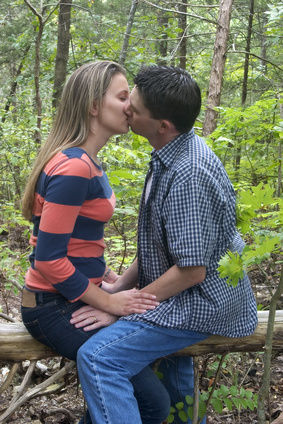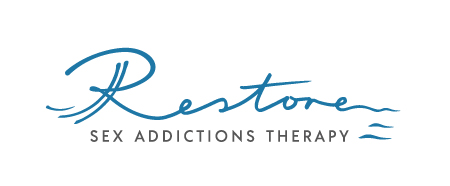15 Mar The Perils of Pornography: Sexual Health in an Internet Age
 Do you know what your sons and daughters are watching online? What are you or your partner looking at? It’s just porn right; everybody looks; it’s a bloke thing; it’s harmless fun.
Do you know what your sons and daughters are watching online? What are you or your partner looking at? It’s just porn right; everybody looks; it’s a bloke thing; it’s harmless fun.
CAUSE FOR ALARM?
Of course sex is our oldest industry so why should viewing pornography be an issue. It’s because the internet has moved the goalposts. It’s no longer the magazine on the top shelf. Or taking half an hour to download a clip. It’s instantaneous, never ending variety, secretive and 24/7. What might have been seen as strange, is no longer. The good old concept of ‘I want to screw a toaster. Well that’s weird. Oh, I’ve found a whole group online of those who also like to screw toasters. Phew, that’s ok then.’
There are definite emerging patterns with clients, with complex issues rooted in a poor sexual identity. This seems in many ways to have an insidious link to pornography in one way or another. A curiosity and interest in sex is normal, healthy and to be expected. However, this natural and progressive awakening to sexuality is being hastened and distorted by exposure to images which are damaging, made all the more shocking as this is becoming ‘normal’ in our technological age.

COMING OF AGE – WHAT MESSAGES ARE TEENS RECEIVING ABOUT SEX, LOVE AND RELATIONSHIPS?
In a potentially less impressionable adult world of course, pornography may have its place. The individual can make a mature decision about if or how to incorporate it into their sexual experience should they so choose. However, it seems as if porn has changed. It has become darker, a world of sexual violence and cruelty focusing on male domination and female humiliation. How might this affect someone who has no reservoir of their own sexuality, when someone who has never had sex with another human being is catapulted into this macabre world of harsh online images? Potentially it can damage those not yet confident, mature, and self-aware enough to have formed a confident sexual identity. This can leave them vulnerable to distorted and damaging messages implicit in pornography.
What are the implications for a generation whose entire expectation of sex is defined by what they see in online porn?
Brains are being rewired; teens are learning that sexual appetite is about choking, degrading, raping, and violence. There is an onslaught of graphic sexual imagery. As Peacock (2021) states in her book A Pocketful of Porn, porn-sites are full of extremely young-looking teenage girls, with the most popular genre of porn described as ‘barely legal teens’ and ‘schoolgirl sluts’. 88% of downloaded porn contains violence against women. Porn sites are educating our youth on what they want to try or what they should be doing sexually. A recent Ofsted report states that sexual harassment in schools and universities has become so ‘normalised’ that most don’t see the point in reporting it.
What I do know is that I am seeing increasing numbers of young clients who in one way or another are struggling with their self-esteem. They are not sure how they can live up to the images of perfection and sexual stamina that are portrayed on screen. And yet in feeling that they don’t compare favourably, they ultimately believe that they are in some way inadequate, that they can’t or won’t ever be desired, much less truly loved.
I work with men whose lives are overtaken by porn, that the need to watch outweighs a desire to have sex with their partners as pornography becomes a surrogate for real sex. Women who are confused and anxious about trying to live up to men’s sexual expectations of them. Any romantic sense of ‘making love’ is overshadowed by rougher, more violent interactions.

PORNOGRAPHY AND ADDICTION – IS PORN LIKE A DRUG?
Pornography is potentially sexually traumatising an entire generation of boys and this toxic effect is filtering down directly into young girls’ lives. Studies of the brain exposed to pornographic images find that it can be as addictive as cocaine, nicotine, or alcohol. When shown erotic images, the reward center of the brain in compulsive porn users shows a heightened response in keeping with those suffering substance addictions. With any addiction, the desire escalates, with a person needing to watch increasingly disturbing things to gain the same dopamine hit, which then doesn’t last as long. It can rapidly start to go wrong.
Time and time again I have very loving family men coming for therapy because the police knocked on the door, bemused at how they had ultimately crossed a line and looked at things that don’t fit their values. It’s devastating and traumatising for the entire family and often the person loses everything. I am genuinely passionate about my work with offenders and those alleged; helping them to gain insight into their spiraling down a rabbit hole. If just one person can understand and not watch another sex abuse image, it’s worth it. However, I far prefer to help people recognise what is happening before they cross the line!
HOW SHOULD WE RESPOND?
 This isn’t about some moral panic, and I would acknowledge that any extreme, unbalanced, or prudish reaction is rarely useful, and would certainly result in the core concerns going unheard. Nevertheless, the evidence of damage that can ensue seems to be right in front of me as increased numbers of people are bringing sex related issues into the therapy room. They are anxiously presenting with intimacy issues and sadly being robbed of what should be one of the most beautiful, pleasurable, and indeed entertaining ways of connecting with another human being.
This isn’t about some moral panic, and I would acknowledge that any extreme, unbalanced, or prudish reaction is rarely useful, and would certainly result in the core concerns going unheard. Nevertheless, the evidence of damage that can ensue seems to be right in front of me as increased numbers of people are bringing sex related issues into the therapy room. They are anxiously presenting with intimacy issues and sadly being robbed of what should be one of the most beautiful, pleasurable, and indeed entertaining ways of connecting with another human being.
I can’t describe enough how in working towards a recovery, how phenomenal the impact stopping watching porn has on people. My clients report feeling less anxious, less irritable; more focused; better relationships; more social; less brain fog; more clarity and concentration on healthier activities; more present in every aspect of their lives; less shame; increased self-worth and esteem; reduced depression.
We really need to talk about pornography – at home, in schools, in parliament, everywhere we can.
That said, if pornography isn’t a problem for you, then just stop. Stop for a week or a month. Just stop. Easy right?




